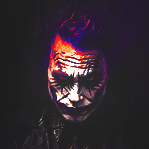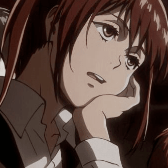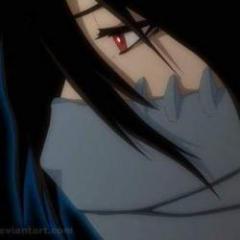Several Nicaraguans transport the coffin of one of their deceased companions.
Monimbó had become a strong line of opposition against the dictator
At 30 kilometers from Managua, Monimbó was, until this Wednesday, the greatest fortress that a town could build with its hands. They dug up the cobblestones and turned them into barricades, filled the jugs with mushrooms for children, soldered the pipes and turned them into mortars that lit a cigarette lighter, planted the streets with crystals and lace to puncture the wheels of their attackers ...
There was a lack of courage but there was a lack of weapons, in the face of the disproportionate strength of the rioters supported by a paramilitary army that on Wednesday used weapons of war to suppress the last great rebel focus of the country. RPG-7 antitank rocket launchers used against humans. The brave indigenous community south of Masaya, which already demonstrated its fierceness against the Spaniards 500 years ago, succumbed to the modern Soviet war machine in the hands of the government of Daniel Ortega and his hoods.
"The coup attempt is already defeated," Nicaraguan presidential secretary Paulo Oquist announced cynically from Brussels. Masaya had not asked to be released from any coup d'etat, but she had declared herself free from Ortega and had been besieging the siege for three months, with barricades guarded by the people. "This fight is not of a political party or of any sector," Commander Guardabarranco explained the day before while teaching the town's defenses. «There is no left or right here. We are the ones from below who are going to those from above, tired of corruption and repression ».
The women fed the men who guarded the trenches and made contact bombs in the jugs of Gerber porridges that saved many hands, thanks to the resistance of the glass during handling. "What do they want, bananito, pear or tuti fruti," the youngsters were asked by the police before throwing them while the humor still lasted. Next to the cobblestone walls, plastic bottles cut in half received humble donations for those who had not worked for more than three months, defending this neighborhood of artisans instead of feeding their families. "We are willing to die for the cause," one of them told this newspaper on the eve of the final assault.
Ortega had proposed to celebrate Thursday without resistance the 39th anniversary of the coming to power of the Sandinista Front, in an attempt to declare victory and repeat the feat of 1979 against Somoza. The irony is that this time he is the dictator against whom the people rise, true heir of Sandinismo. Those who fought in the 1980s to maintain the revolution, like Silvia, 53, can not get rid of "the trauma" of having helped a party that now massacres the people. "If I had known this I would never have moved a finger," he lamented.
During the last ten days the paramilitary trucks have entered with bulldozers in the rebellious villages that built barricades with stones and paving stones precisely to prevent them from entering, but without weapons to wield. Universities and churches shot, rural leaders arrested, burned town councils and rebels executed in the streets in full view of the town. The president's orders were to "clean up Masaya at whatever cost," police commissioner Ramón Avellán announced, "fulfilling the president's orders."
View of a street with barricades in the indigenous neighborhood of Monimbó.
The commissioner takes revenge this way of the three weeks that the po[CENSORED]tion had him besieged without letting him sleep at night with mockery over the loudspeakers. "Commissioner Avellán," they shouted at every megaphone in a sweet voice. «Have you been able to kiss his wife? Because if not here the women of Masaya we have one: Boom, the mortars sounded. What do you think, that in this fight there were only bulls? ».
This Wednesday were his men and the hooded ones who threw kisses of Dracula, despite the fact that the town once gave back to his son, when he was intercepted at the barricades. The bloodthirsty repression has received international unanimous condemnation, which failed to stop with words the massacre of Monimbó or with the intercession of the United States. "We strongly urge President Ortega not to attack Masaya," Assistant Secretary for Latin America Paco Palmieri asked on Twitter. "The continued violence and bloodshed promoted by the Government of Nicaragua must cease immediately. The world is watching ».
Observing and praying. The Vatican nuncio Waldemar Stanislaw warned that "violence can not solve the political crisis and guarantee a peaceful future in Nicaragua", but nothing could stop the blood and fire orgy spilling over the city of the Masaya volcano, always active.
An opponent faces the Army.
The paramilitary army deployed silently to the outskirts of the city when the sun was breaking, at 5.30 am, with the crowing of the roosters. The dogs betrayed them and their owners alerted the custodians of the barricades, who rang the bells of the church to give the warning voice. To distinguish themselves, this Wednesday they wore blue shirts. The day before, during the assault on the White Villages that surround Masaya, green shirts. What did not change were the black balaclavas and the strength of their AK-47 assault rifles, which were joined by machine guns on Wednesday.
"This is not a civil war," said former Foreign Minister Francisco Aguirre. "It is a unilateral killing in which 95% of the deaths and 100% of the detainees and disappeared are on the same side."
View of a street with barricades in the indigenous neighborhood of Monimbó.
In case there were doubts about the negotiating nature of the government, at the same time that his troops auctioned the insurgents of Monimbó, the campesino leader member of the National Dialogue Table Medardo Mairena, arrested on Friday, appeared in court. He did it without a lawyer of his choice and so broken that according to his family he was put on a stretcher for a closed-door hearing.
In the outskirts, Mercedes Sosa sang in a recording the 'I only ask God', that the demonstrators accompanied with 'Justice for the Nicaraguan people', said the placards. "They are killing us!".





.thumb.jpeg.efe46bf2251e3db09115154613c045c3.jpeg)











![[N]audy](https://csblackdevil.com/forums/uploads/monthly_2020_06/lCGU8Xg.thumb.png.45679e2de49e686878288cdf7b53f6f4.png)






